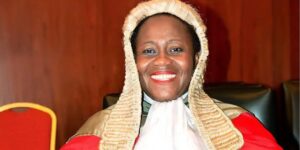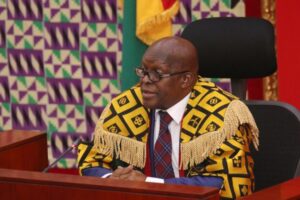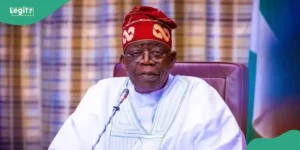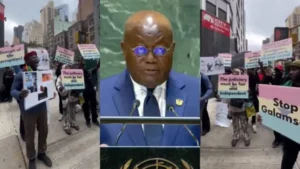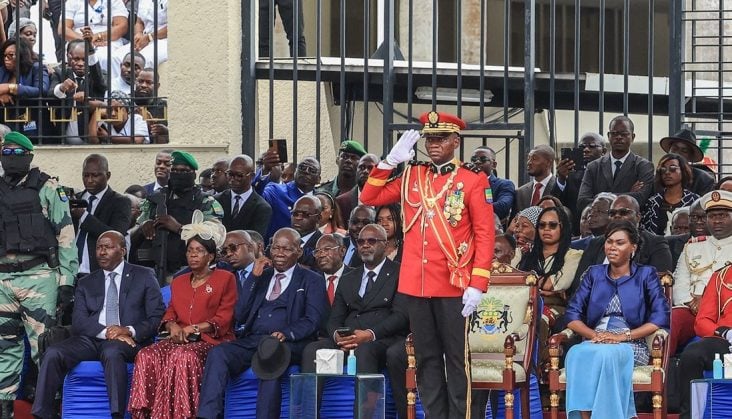
Ever since his swearing in on 4 September as Gabon’s President of the transition, Brice Clotaire Oligui Nguema has used his charisma to garner support.
As Nguema was being sworn in earlier this month, the people of Gabon had a bird’s eye view of the ceremony, which they watched on a giant outdoor screen.
“Before, whenever things happened at the Palace, we weren’t in attendance,†said Hurlene.
A quality control officer at Comilog, the Ogooué mining company, she arrived outside the presidential palace at 9:30 AM. There was no question of missing what could mark the start of a new era.
“It’s so new, the soldiers are friendlier, and I even took a photo of the palace,†the 30-year-old enthused, showing a selfie of herself in front of the seat of power, which was not allowed during the Bongo dynasty.
On the walkway of the mosque overlooking the centre of power, Gabonese people dared to boo Alain-Claude Bilie-By-Nze, now former prime minister, when he appeared on the screen.
They also took the liberty of chanting “Sylvia voleuse†or ‘Sylvia thief’ at the top of their voices, aimed at the former first lady, currently under house arrest not far away.
Some shouted at the soldiers, saying they were spoiling their view of the palace. Is this proof that Nguema has already breathed new life into Libreville?
“There is no more fear among the people, only a real sense of free expression,†said Arice, a student at Omar-Bongo University. “There is even an air of euphoria.â€
Evidence of openness
The days following the coup were marked by successive meetings between the head of the transition and various sections of the population.
“We treat everyone the same way,†said Télésphore Ngomo, the new head of communications at the presidential palace.
Although the opposition parties had not entered the black-and-gold gates of the Palais du bord de mer for a long time, they sat in the front row at the inauguration and were thanked on stage by the new president himself. He gave some of them a long hug after paying tribute in his speech to the memory of André Mba Obame,
founder of the Union Nationale political party.
“Unlike the former government, the military has made a pragmatic and intelligent choice by showing openness,†says Prime Minister Raymond Ndong Sima.
The day before the swearing-in, the candidates of the opposition Alternance 2023 platform had been invited to an interview in one of the private rooms of the palace.
Home visit
“When I consider people, whether they are good or bad, they consider me in return, and that was the case with General Oligui Nguema,†continued the former presidential candidate, Sima. The only notable absentee, apart from Jean Ping, politician, businessman and former AU head, was Alternance 2023 presidential candidate and eminent economist Albert Ondo Ossa.
However, the new transition president intends to include him in his strategy of openness. Nguema, who appears to be willing to listen to all parties, had offered to visit opposition leader Ossa at his home.
Ossa, who is still calling for the results of the presidential election, which he claims to have won, to be recognised, welcomed the new head of state into his home on the evening of 4 September.
The new government, which is expected to include several members of Alternance 2023, was discussed, as were Nguema’s ambitions for the forthcoming transition.
At an extraordinary summit held the same day as Nguema’s inauguration in Malabo, Equatorial Guinea, the Economic Community of Central African States (ECCAS), which suspended Gabon following the coup, gave Libreville’s new strongman one year to organise free and credible elections and hand over power to a civilian authority.
Prime Minister Sima last week said a two-year transition process was reasonable before elections, but noted that the period could be slightly longer or shorter.
A sense of political proximity
“It’s been a long time since there was unity between the decisions taken by the palace and the wishes of the population,†said inauguration bystander Arice, in front of the presidential palace.
In the space of just a few days, Nguema seems to have succeeded in crafting a media persona that he is a man who listens.
“There’s something unique about the way he receives everyone and manages to get close to them,†said four correspondents from the international press in Libreville, who were received along with all the Gabonese media on Saturday 2 September.
Invited to share their concerns with the former head of the Berets Verts (Green Berets), more than 100 journalists from state-run and private media alike were able to engage in a frank, open question-and-answer discussion with Libreville’s new strongman, who had given instructions to his communications managers.
In front of his guests from the economic sector, Nguema also spoke without embellishment, not looking at his notes, in a sometimes very direct manner, not hesitating to put business leaders in their place.
Is this a sign of something new? A corporal in charge of guarding one of the entrances to the presidency in the aftermath of the coup also wants to believe it.
“I feel less pressure. You can see how I’m talking to you, without needing to search you,†he said. Will this period of euphoria last, or will the reality of power catch up with the people of Gabon?
Less than a week after the coup, the Transition Committee knows its most precious asset is the support of the people – easily worth a few changes in traditional protocol.
